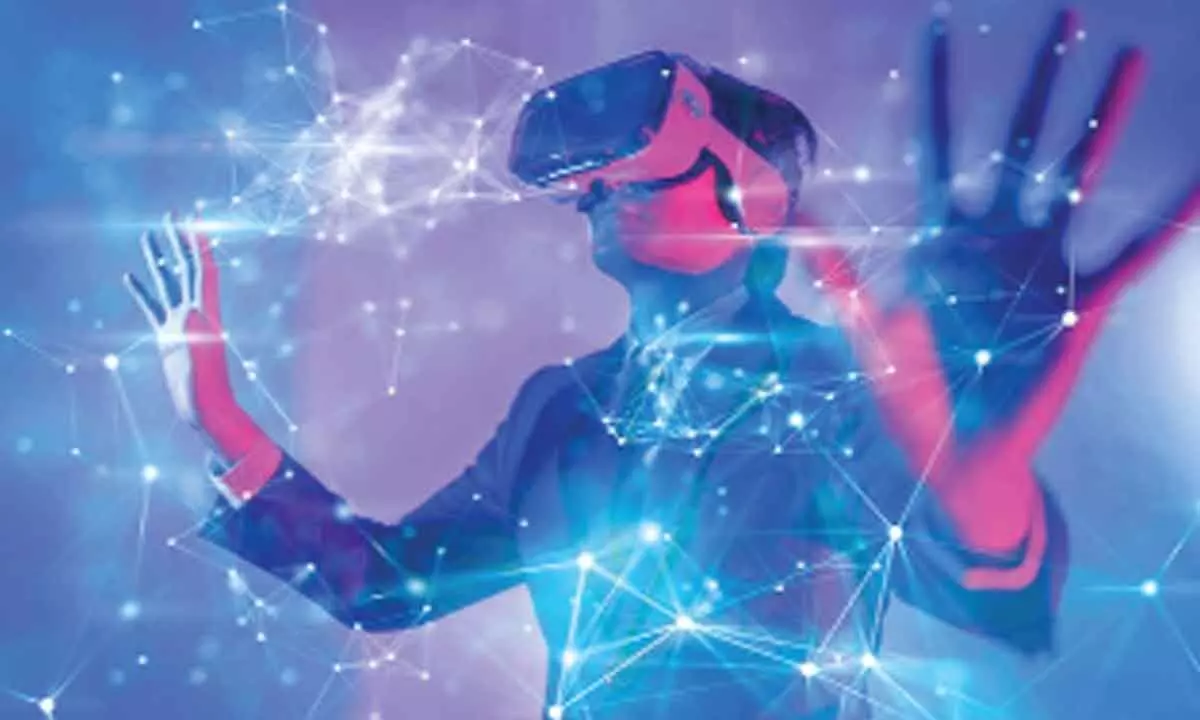How metaverse can transform the travel industry
One of the greatest benefits to the metaverse is that it offers a truly democratized vision of travel, one that allows everyone to participate regardless of their location
image for illustrative purpose

The term 'metaverse' refers to the creation of virtual worlds that are centred on connection. Users can explore the metaverse with digital avatars that can engage with each other – or with other brands and businesses who create virtual products or storefronts in the space. The chance for brands to connect with consumers in a new virtual space is an opportunity for all forms of business, but there is a particular benefit for travel.
Airlines are starting to explore features of metaverse travel, like virtual cabin crews and flights, while hotel companies are setting their sights on virtual real estate, buying 'land' and designing digital replicas of physical hotels. The incorporation of augmented and virtual reality technologies can even enhance the consumer experience of destinations, allowing location-specific attractions and businesses to extend behind their physical boundaries. Across the travel and tourism industry, the metaverse has the potential to reach beyond the limitations of physical travel, amplify consumer personalization and deepen immersive experiences.
From immersive customer experiences to improvements in manufacturing, airlines have begun to explore the benefits that metaverse travel can provide. Qatar Airways was one of the first companies to join the world of metaverse technology with the introduction of the QVerse, a virtual reality platform unique to the airline, which acts as a sort of virtual airline for passengers. Passengers can access the Qverse from the airline's website. From there, they're granted access to a full virtual tour of the cabin, hosted by Qatar Airway's own 'MetaHuman' cabin crew. From check-in to a complete showcasing of the luxurious flight accommodations, Qatar's 'MetaHuman' guides the passenger through an incredibly realistic experience from the comfort of the passengers' own home, demonstrating the brand's offerings in a more physically and financially accessible format that can engage a wider audience.
The travel company Thomas Cook has offered a virtual experience flying over the Manhattan skyline. The bid to attract visitors resulted in a 40 per cent return on investment which led to a 190 per cent increase in New York City excursions. As technology develops, destination marketing organizations could utilize real-time data to display up-to-date information about the destination and lead tourists to nearby points of interest.
Other OEMs, like Boeing, are researching ways to utilize the metaverse to streamline aircraft manufacturing. Boeing hopes to use digital tools to unify and optimize the design and production process of their carriers. By creating a virtual three-dimensional replica of the aircraft and linking it to physical production, Boeing would be able to run simulations to ensure safe and efficient assembly. Production would be supported by a 'digital thread' of information linking all relevant information needed, such as airline specifications, aircraft parts, and certification documents. The digital manufacturing process takes on a kind of 'digital twin' role, allowing airlines to navigate high-cost and high-stakes production in a format that can be easily modified, explored, and innovated.
Hotel companies are also now proactively testing out the virtual landscape to see how the digital world can provide new insight into consumer travel behaviour. Companies, such as Marriott and Millennium, will purchase 'land' or a virtual space in each unique metaverse platform, and then create a digital replica of an existing property within that space, allowing them to create virtual hotels. How each hotel chooses to handle the specifics has varied (i.e. which platform to use and how to accept currency), but the goal is the same: provide potential customers with an opportunity to virtually visit and tour a property without ever having to leave their homes. The benefit is that consumers will be able to make informed decisions on where to plan vacations, hold business events, and more, just based on a short virtual experience.
Singapore's Millennium Hotels is one of the first hotel companies to begin using metaverse travel technology by inviting guests to virtual hotel tours. M Social Hotel, opened on 5 May, 2022, exists in a platform called Decentraland, and is one of the first digitally produced hotels of its kind. The hotel welcomes online avatars to tour their hotel, and guests are greeted in the lobby and shown around by a Millennium hotel 'employee.'
Whether it's simulating hotel stays or digitizing machinery production, the metaverse is full of promise for the travel industry. The option to have consumer test an environment or property quickly and virtually saves time and money for both parties. Perhaps one of the greatest benefits to the metaverse is that it offers a truly democratized vision of travel, one that allows everyone to participate regardless of their location. We've barely scratched the surface of the metaverse, and the possibilities are already endless.

